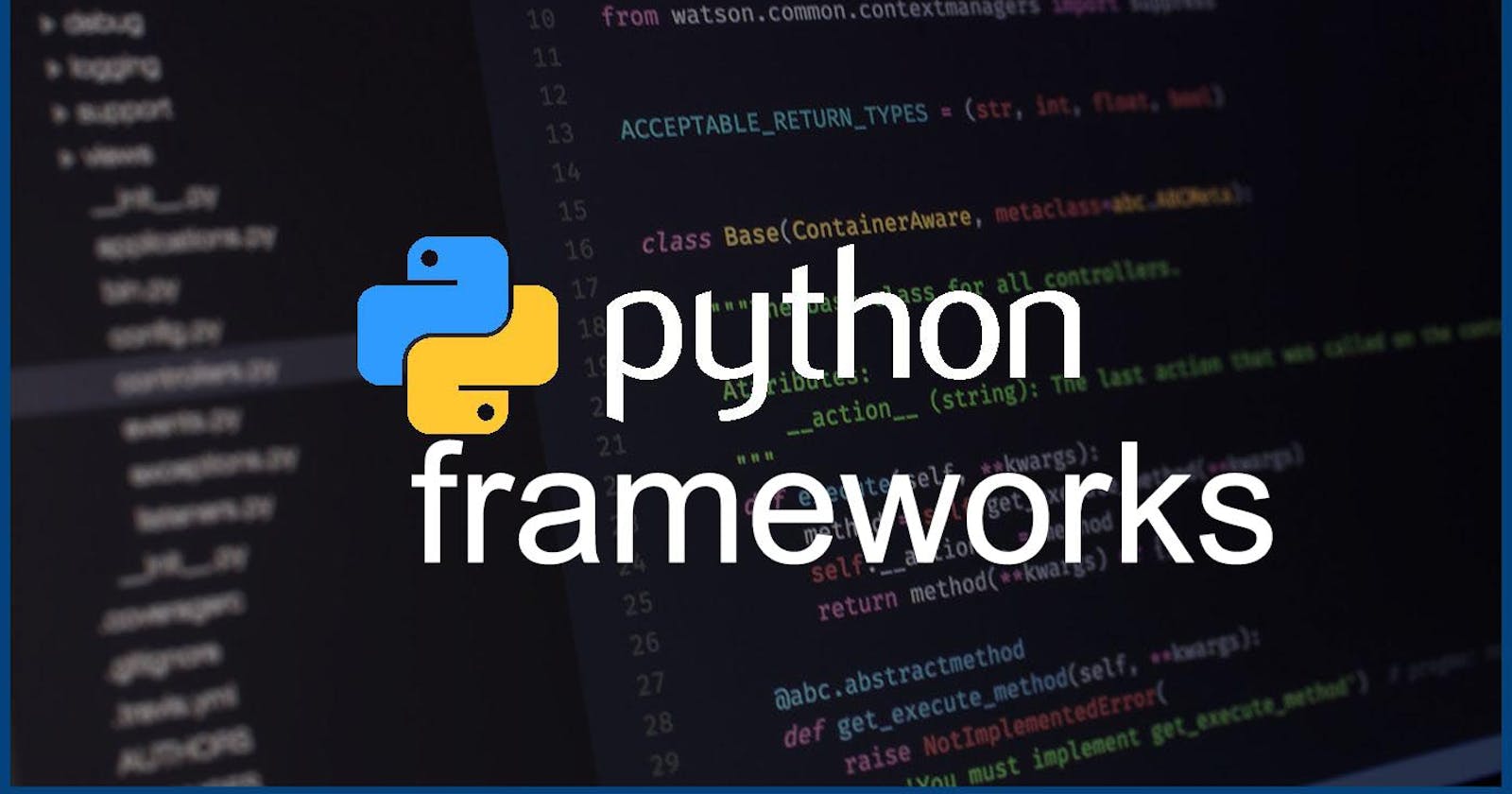Frameworks make developers’ lives easier by offering them a structure for application development.
By automating the implementation of redundant tasks, frameworks cut development time and enable developers to focus greatly on application logic rather than routine elements. In this article I have listed some of the best Python Frameworks.
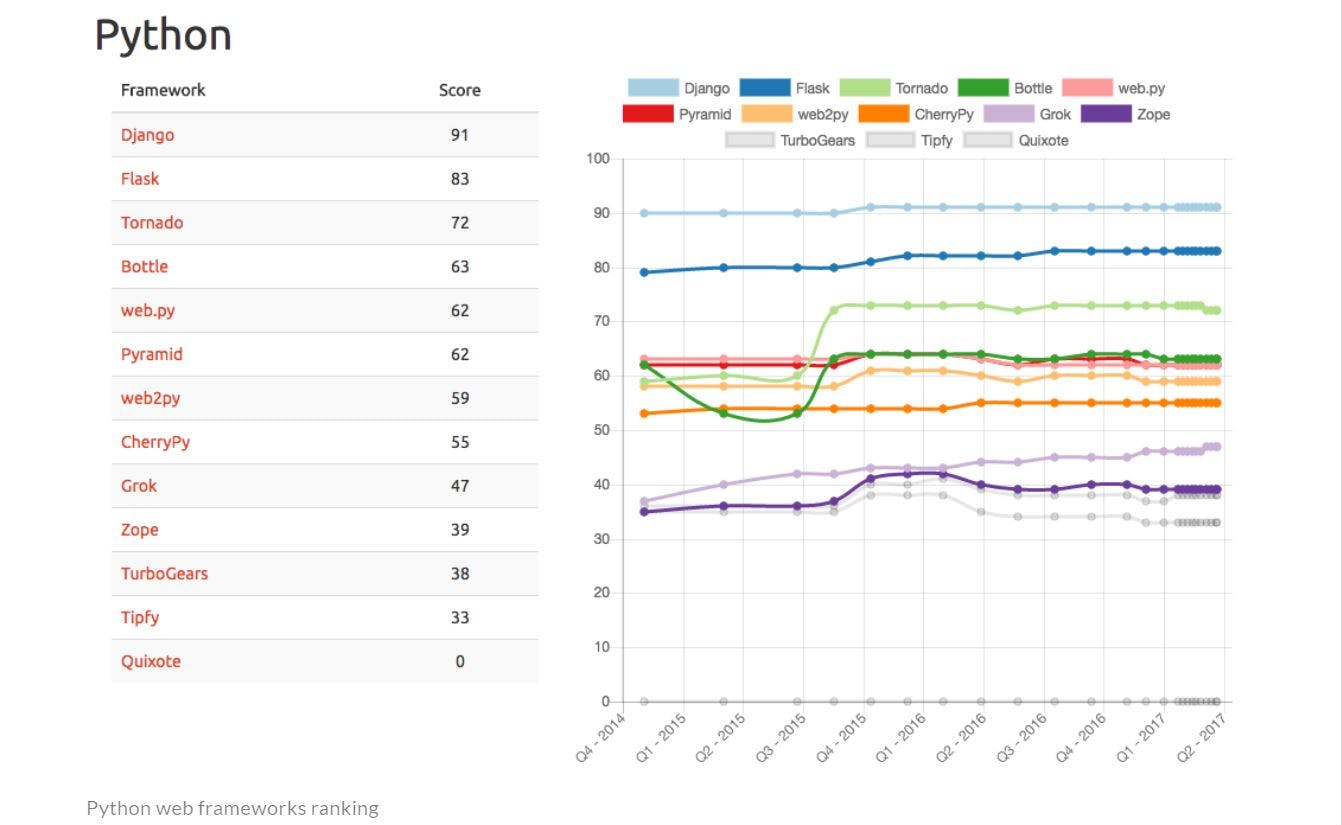
Django
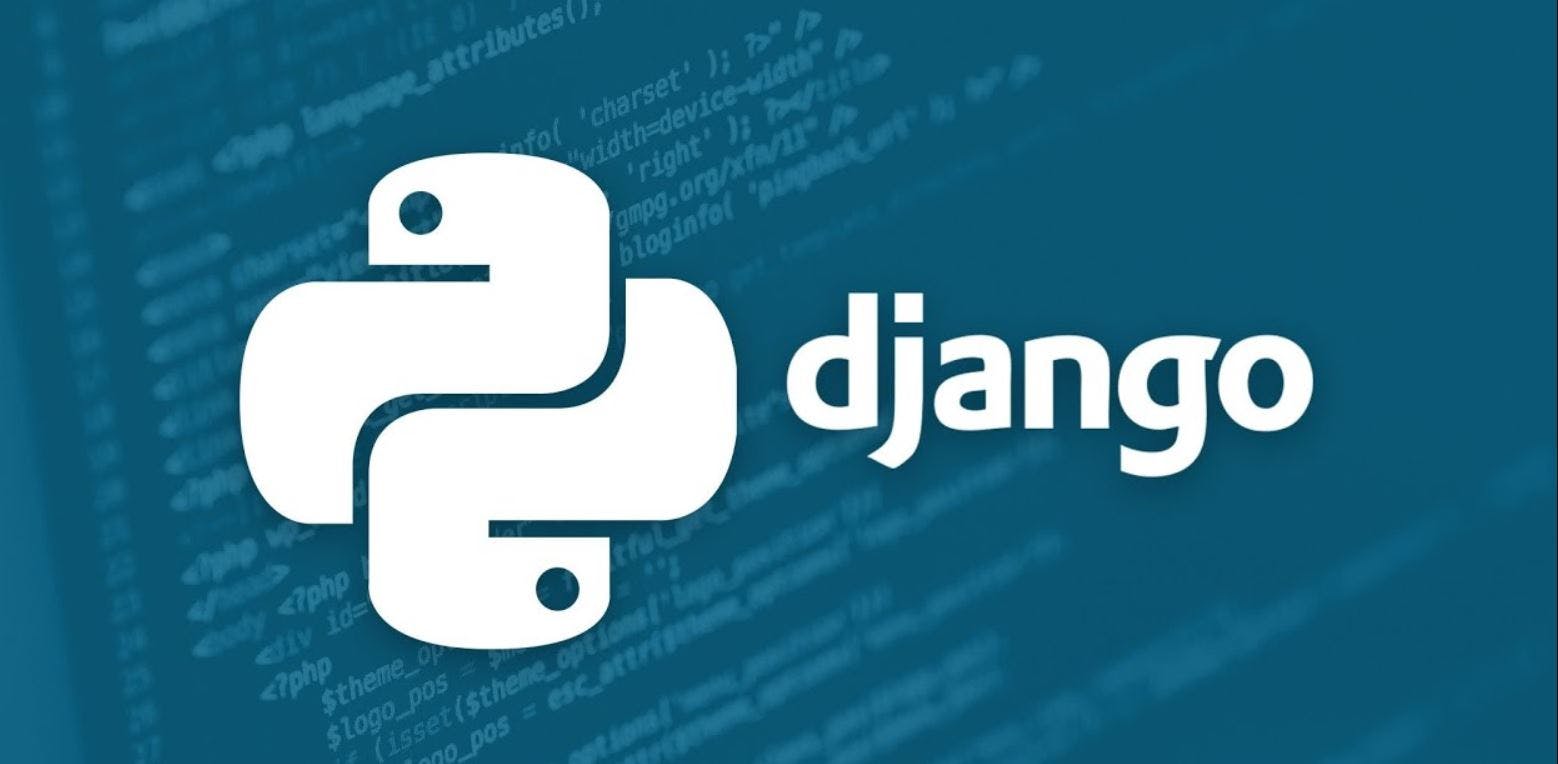
Django is a high-level Python web framework that enables rapid development of secure and maintainable websites.
Built by experienced developers, Django takes care of much of the hassle of web development, so you can focus on writing your app without needing to reinvent the wheel.
It is free and open source, has a thriving and active community, great documentation, and many options for free and paid-for support.
Flask
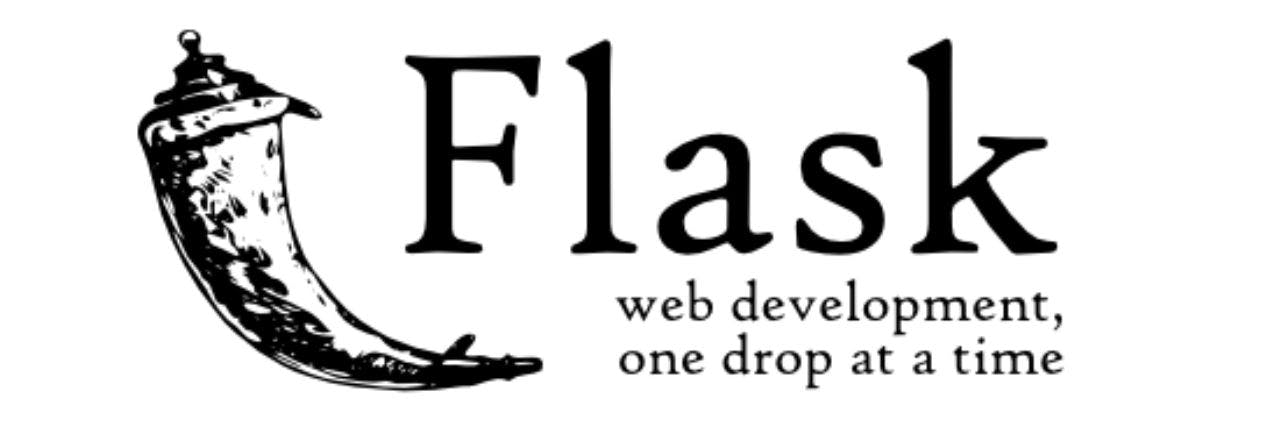
Flask is considered more Pythonic than the Django web framework because in common situations the equivalent Flask web application is more explicit.
Flask is also easy to get started with as a beginner because there is little boilerplate code for getting a simple app up and running.
Flask is often referred to as a microframework. It is designed to keep the core of the application simple and scalable.
Instead of an abstraction layer for database support, Flask supports extensions to add such capabilities to the application.
Tornado
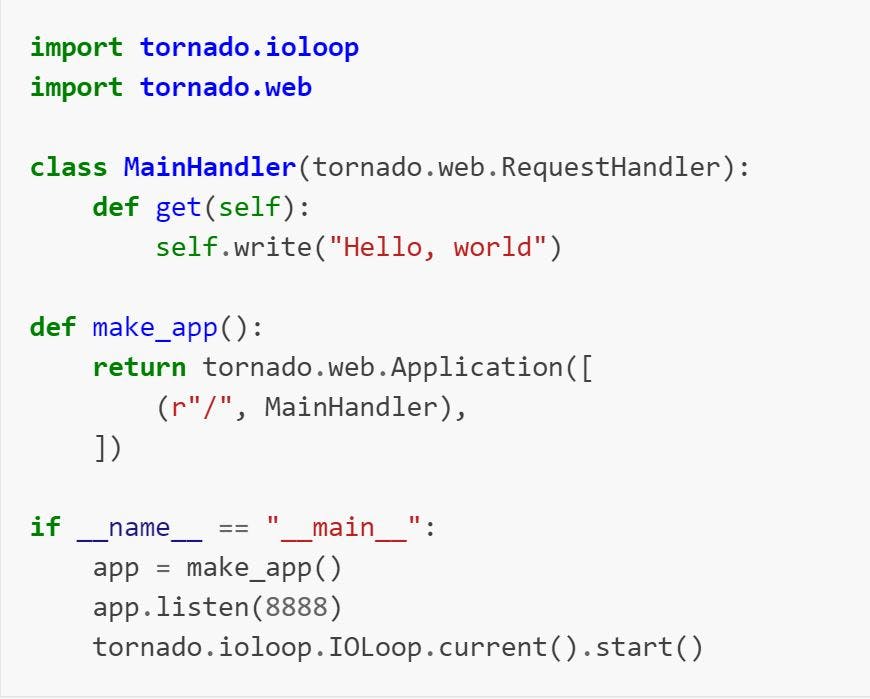
Tornado is another tiny framework aimed at a specific use case: asynchronous networking applications.
Tornado is well-suited for creating services that open a great many network connections and keep them alive—that is, anything involving WebSockets or long polling. Tornado 6.0 requires Python 3.5 or higher, and drops Python 2 support entirely.
Tornado has a built-in templating system for generating HTML and other output, and provides mechanisms for internationalization, form handling, cookie setting, user authentication, and CSRF protection. But it leaves out features, like form validation and an ORM, that are mainly for user-facing web apps.
Bottle
Bottle is a fast, simple and lightweight WSGI micro web-framework for Python. It is distributed as a single file module and has no dependencies other than the Python Standard Library.
Bottle includes its own simple HTML templating engine. Again, though minimal, the templating engine has all of the essentials.
Variables included in a template are rendered with safe HTML by default; you have to indicate which variables are safe to reproduce literally.
If you’d rather swap out Bottle’s template engine for a different one, such as Jinja2, Bottle lets you do so without fuss.
It provides support for apps like the Google App Engine, Python Paste, and includes several templates like Cheetah and Mako.
Falcon
If you’re building REST-based APIs and nothing else, Falcon was made just for you. Lean and fast, with almost no dependencies beyond the standard library, Falcon provides everything you need for REST APIs and nothing more.
Falcon 2.0, released in 2019, does away with Python 2.x support and requires at least Python 3.5.
A big part of why Falcon earns the “light and slender” label has little to do with the number of lines of code in the framework. It’s because Falcon imposes almost no structure of its own on applications.
All a Falcon application has to do is indicate which functions map to which API endpoints. Returning JSON from an endpoint involves little more than setting up a route and returning the data via the json.dumps function from Python’s standard library.
CherryPy
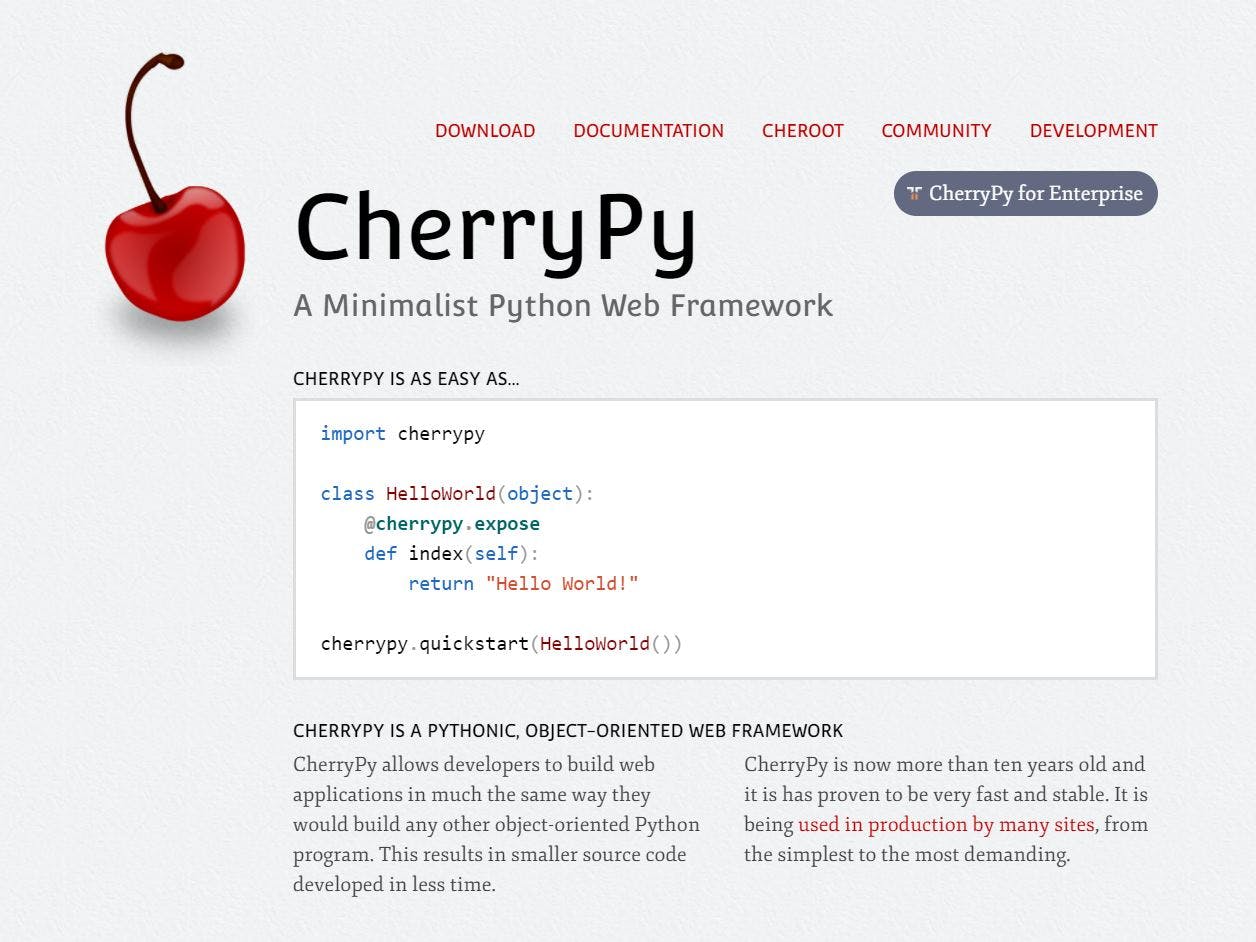
CherryPy has been around in one form or another for almost 20 years, but hasn’t lost the minimalism and elegance that distinguished it from the start.
The goal behind CherryPy, aside from containing only the bare bits needed to serve web pages, is to feel, as far as possible, not like a “web framework” but like any other kind of Python application.
Sites like Hulu and Netflix have used CherryPy in production because the framework provides a highly unobtrusive base to build on.
CherryPy uses pooled threads under the hood, the better to support multithreaded server adapters.
CherryPy lets you keep your web application apart from the core logic. To map your application’s functions to URLs or routes served by CherryPy, you create a class where the namespaces of the objects map directly to the URLs you want to serve.
Web2Py
Web2PyType – Full-stack framework For Python developers looking for a scalable full-stack framework, Web2Py might be the answer.
The open-source Python framework comes with its own web-based IDE, which includes a code editor, debugger, and one-click deployment.
Though Web2Py allow users to create dynamic web content in Python, it doesn’t provide support for Python 3.
The ticketing system is one of the most important features of the Python framework. The system issues a ticket to the user whenever an error occurs.
Pyramid
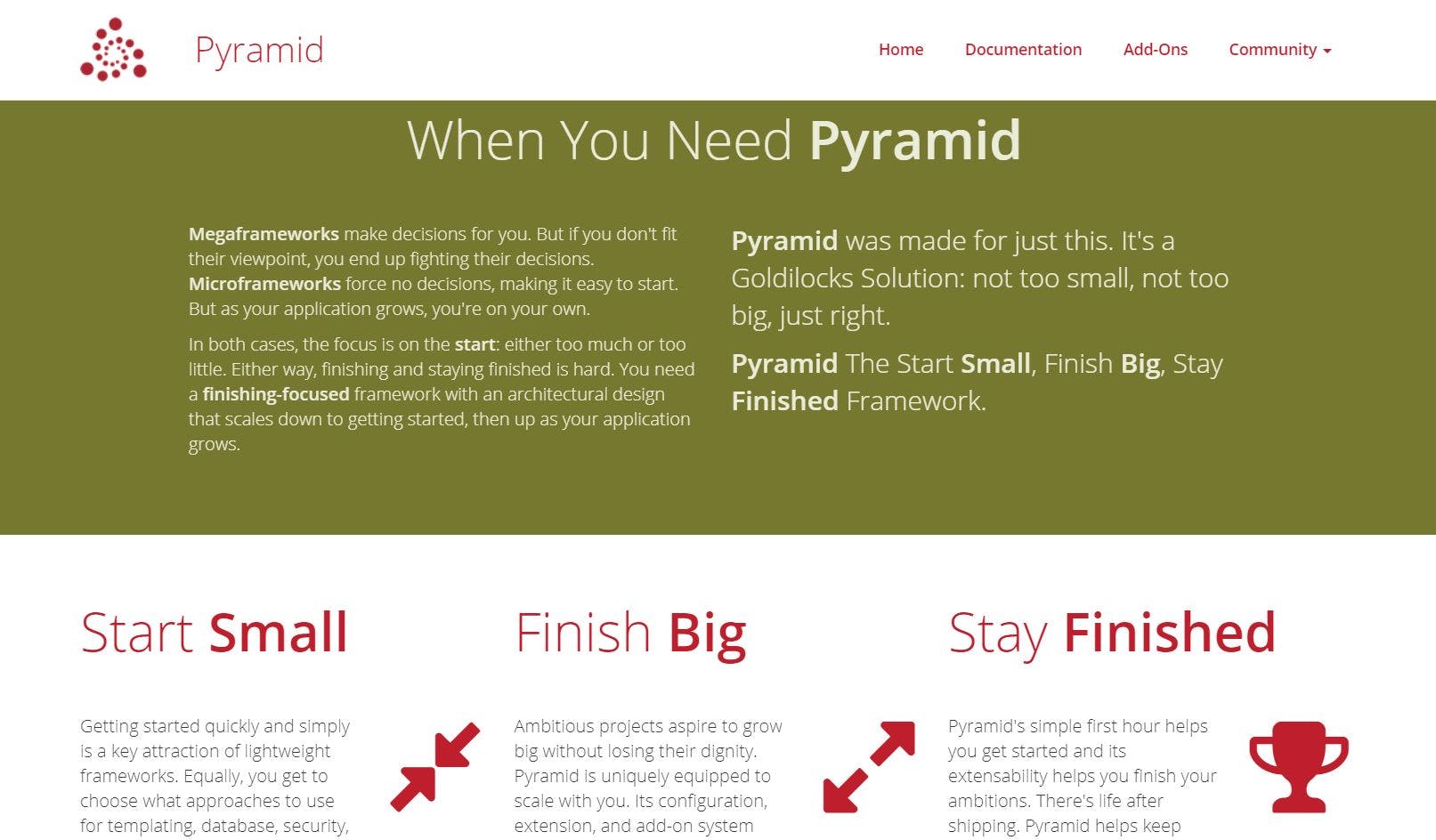
Small and light, Pyramid is well-suited to tasks such as exposing existing Python code as a REST API, or providing the core for a web project where the developer does most of the heavy lifting.
“Pyramid will allow you to become productive quickly, and will grow with you,” says the documentation.
“It won’t hold you back when your application is small, and it won’t get in your way when your application becomes large.”
A good way to describe Pyramid’s minimalism would be “free of policy,” a term used in the section of the documentation that discusses how Pyramid shapes up against other web frameworks. Basically, “free of policy” means that which database or which templating language you choose to use is not Pyramid’s concern.
Bobo
Bobo is a light-weight framework for creating WSGI web applications. It’s goal is to be easy to use and remember.
It addresses 2 problems:
1) mapping URLs to objects and 2) calling objects to generate HTTP responses.
Bobo doesn’t have a templating language, a database integration layer, or a number of other features that are better provided by WSGI middle-ware or application-specific libraries. Bobo builds on other frameworks, most notably WSGI and WebOb.
Klein
Klein is a micro-framework for developing production-ready web services with Python.
It’s built on widely used and well tested components like Werkzeug and Twisted, and has near-complete test coverage.
Morepath
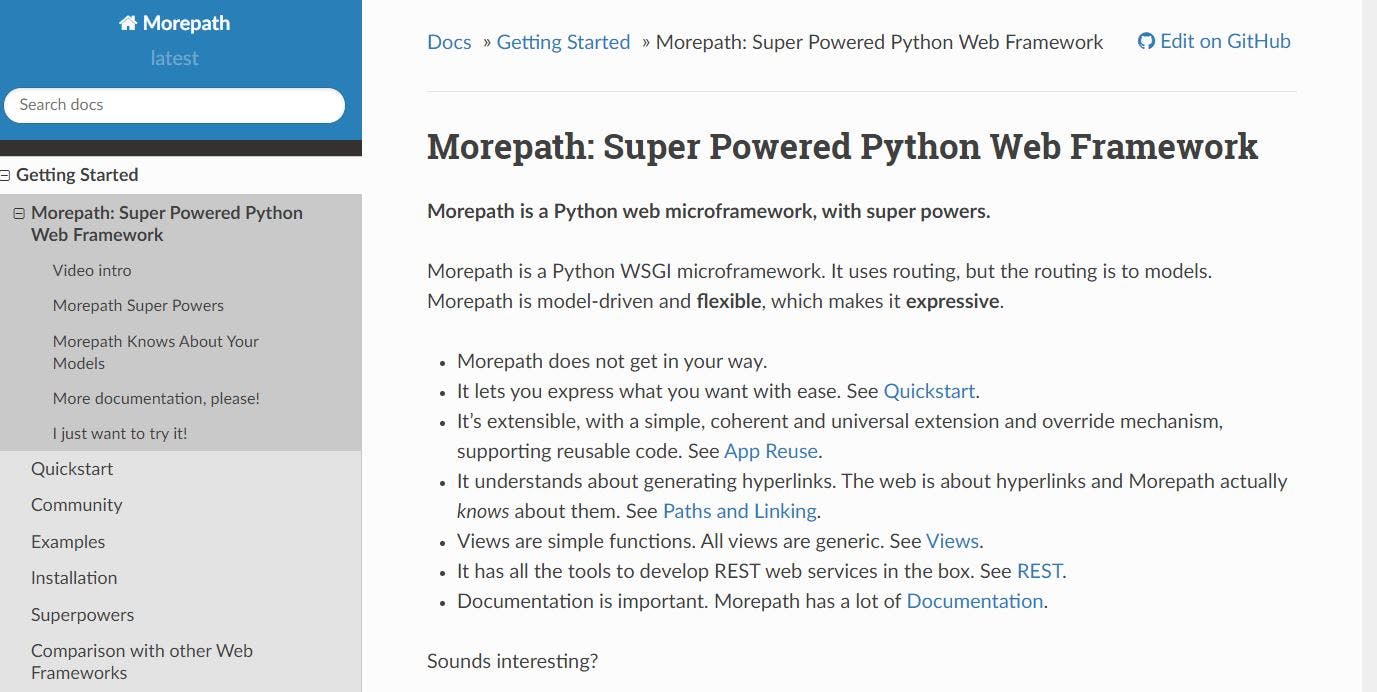
Morepath is a Python web microframework, with super powers. Morepath is an Python WSGI microframework.
It uses routing, but the routing is to models. Morepath is model-driven and flexible, which makes it expressive.
With Morepath, you can bundle a set of behaviors such as views (and routes) in a custom framework application, and then let others reuse it in their own applications.
But if in the same run-time you want to have another application that doesn't share any of this behavior, Morepath lets you do this too.
Pycnic
Pycnic is an object-oriented microframework believed to be the fastest for building JSON-based APIs.
The small, standalone, and optimized for JSON-based APIs framework is able to hold its ground well among big players. Because Pycnic creates just the Web APIs, it has a minimal footprint and therefore, it is fast.
